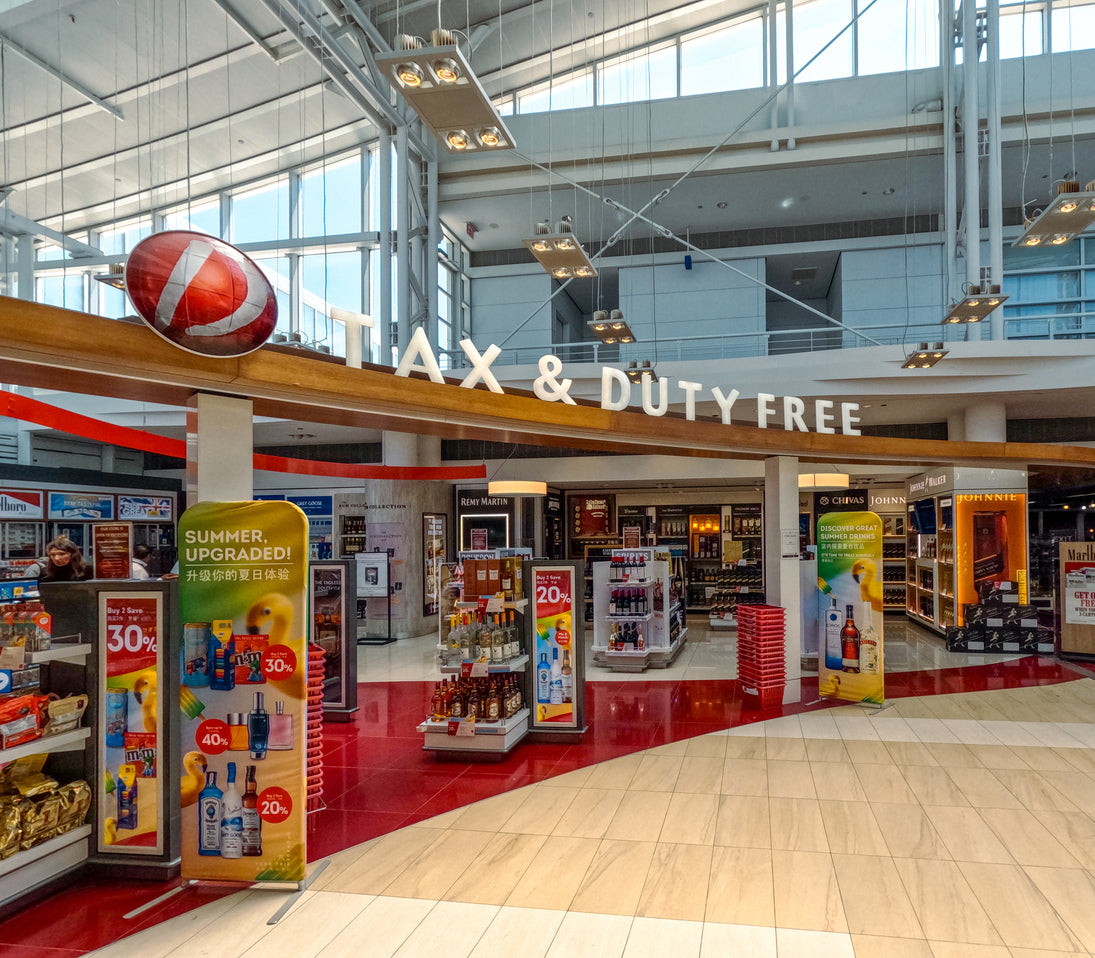
Discover The Recent Trends in the Travel Retail & Duty-Free Industry
Share

The travel retail and duty-free industry has long been a lucrative sector, providing international travelers with the unique opportunity to shop tax-exempt products in airports, seaports, and border areas. From luxury goods and electronics to cosmetics, spirits, and confectionery, these duty-free stores cater to a global audience looking for indulgent, convenient, and often exclusive shopping experiences.
In recent years, the industry has faced numerous challenges—most notably the impact of the Covid-19 pandemic. However, with the world gradually recovering, this sector is poised for remarkable growth. New trends and innovations are reshaping the landscape, making duty-free shopping even more accessible and exciting for consumers. For investors, this presents a golden opportunity to tap into a rapidly evolving market driven by technology, customer experience, and global accessibility.
1. In-Air Duty-Free Shopping
One of the most exciting trends transforming the travel retail and duty-free industry is the emergence of in-flight shopping. Airlines have observed the success of duty-free shops in airports and have adopted similar concepts on their flights, offering passengers the opportunity to shop while in the air. This new avenue not only generates additional revenue for airlines but also enhances the overall customer experience.
In-flight duty-free shopping offers a variety of tax-exempt products like watches, electronics, and beauty items. The appeal of purchasing watches during flights, for example, is immense—passengers can save up to 40% in taxes, making luxury watches far more affordable.
Notable examples of this trend include Singapore Airlines' upcoming launch of the world’s first in-flight e-shopping experience. Partnering with AirFree, Thales, and Panasonic Avionics, SIA will provide passengers with access to exclusive products such as beauty items, fragrances, and electronics—all at duty-free prices. SpiceJet also launched Sky Mall on their in-flight entertainment platform, offering passengers the ability to shop for everything from electronics to apparel.
This shift toward in-air duty-free shopping opens up new revenue streams and growth prospects for airlines and investors alike, positioning in-flight retail as a major pillar of the industry’s future.
2. Pre-Order Shopping Revolution
Another game-changer in the industry is the rise of pre-order shopping. Passengers can now browse duty-free catalogs online, pre-order products, and collect them at the airport before their flight departure. This trend allows consumers to plan ahead, ensure they get the best deals, and avoid the stress of shopping while traveling.
Pre-ordering also provides customers with exclusive discounts and offers, making it an attractive proposition for price-conscious travelers. For instance, Lotte Duty Free launched an international online platform, Station Direct, which allows customers in several countries to purchase a wide array of products, from cosmetics to liquor, at duty-free prices.
Flydubai has also tapped into the pre-order trend by launching a new online duty-free shop. It offers a variety of products, including beauty products, electronics, and jewelry, allowing passengers to complete their shopping before they even board.
For investors, this growing shift towards online and pre-order shopping presents exciting opportunities to back innovative platforms and businesses that are capitalizing on these changing consumer preferences.
3. Metaverse Integration: The Future of Duty-Free Shopping
The integration of metaverse technology is set to revolutionize the duty-free shopping experience by providing immersive virtual shopping environments that transcend physical limitations. Customers can now explore virtual duty-free stores, interact with virtual salespeople, and purchase products using both real-world currencies and virtual ones.
The metaverse allows duty-free retailers to offer virtual-only products, host live events, collaborate with influencers, and provide personalized shopping experiences such as virtual try-ons or tailored product recommendations. This expansion into the digital space offers enhanced customer engagement and expands the reach of duty-free stores globally.
An exciting example of this trend is the partnership between Hyundai Department Store Duty Free and OlimPlanet, which is developing a Metaverse Duty-Free Shop using the Elypecs platform. This collaboration will allow customers to virtually shop in an interactive, lifelike environment, mimicking the experience of shopping in a traditional duty-free store.
For investors, the metaverse represents a new frontier in retail that is expected to unlock unparalleled levels of engagement, personalization, and revenue potential.
4. The Role of Technology in Expanding Product Offerings
As technology continues to advance, the travel retail and duty-free industry is increasingly relying on advanced analytics, AI-driven personalization, and seamless payment systems to enhance the customer experience and increase sales. These technological innovations enable retailers to make data-driven decisions, personalize product recommendations, and offer targeted discounts.
Technology also facilitates smoother transactions, whether through digital wallets, contactless payments, or seamless e-commerce platforms that enable cross-border shopping. With technology at the core of the industry’s transformation, retailers can provide more tailored experiences, ensuring that they not only meet but exceed the expectations of modern travelers.
Conclusion: A Thriving Future for Investors
In conclusion, the travel retail and duty-free industry is evolving rapidly, and this shift is fueled by innovation, technology, and a relentless drive to improve the consumer experience. With trends like in-flight shopping, pre-order services, and metaverse integration, the industry is positioned for explosive growth. As the sector rebounds from the pandemic, it presents substantial opportunities for investors seeking to capitalize on cutting-edge retail experiences and global market expansion.
The future of duty-free shopping is digital, immersive, and customer-centric. By embracing these trends, companies can tap into new revenue streams, improve operational efficiencies, and build stronger relationships with travelers worldwide. For investors, the duty-free sector offers a wealth of opportunities to be part of a rapidly growing and exciting industry.